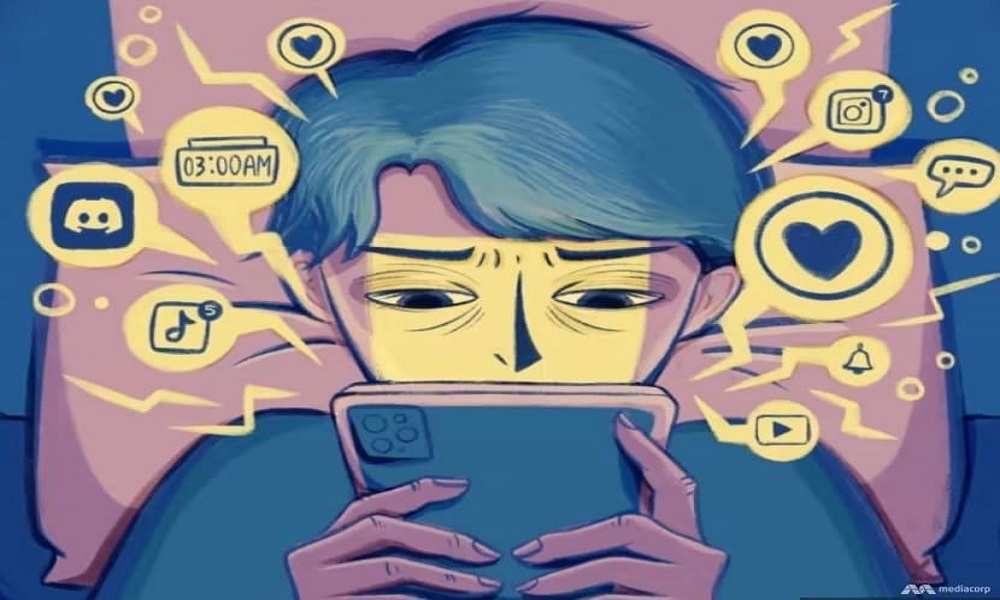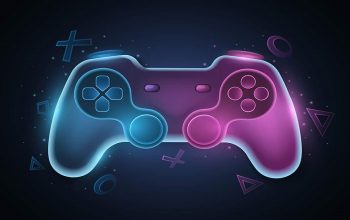Impact of Social Media Addiction in the Youth
Social media is a term for internet sites and apps that you can use to share content you’ve created. Social media also lets you respond to content that others post. That can include pictures, text, reactions or comments on posts by others, and links to information.
Online sharing within social media sites helps many people stay in touch with friends or connect with new ones. And that may be more important for teenagers than other age groups. Friendships help teens feel supported and play a role in forming their identities. So, it’s only natural to wonder how social media use might affect teens.
Social media addiction is similar to other forms of addiction, where people develop an unhealthy dependence on platforms like Instagram, Snapchat or TikTok. This dependency often interferes with daily life, affecting both mental and physical health.
Social media is designed to be engaging and rewarding. Features like likes, comments and shares provide instant gratification, which can trigger the brain’s reward system. For teens, whose brains are still developing, these platforms can be particularly enticing. The teenage brain is more sensitive to dopamine, a neurotransmitter associated with pleasure and reward. The “likes” and notifications act as a dopamine trigger, creating a cycle of craving and reward that can lead to addiction.
SYMPTOMS OF SOCIAL MEDIA ADDICTION –
Recognizing the signs of social media addiction can be the first step toward addressing the issue. Here are common social media addiction symptoms:
Preoccupation with Social Media: Constantly thinking about or planning to use social media.
Neglecting Responsibilities: Ignoring schoolwork, chores or personal obligations in favor of social media.
Mood Modification: Using social media to escape negative emotions or enhance mood.
Tolerance: Spending increasing amounts of time on social media to achieve the same level of satisfaction.
Withdrawal Symptoms: Experiencing anxiety, irritability or depression when unable to access social media
Feeling unsettled when there is no access to the internet, the social network is down, or it is slower than usual.
Checking social media first thing in the morning and last thing at night.
Feeling stressed when the smartphone isn’t to hand.
Using social media while walking.
Feeling bad when not getting likes, retweets or views.
Using social media when driving.
Preferring to communicate with friends and family through social media rather than face-to-face.
Feeling the need to share everyday things all the time.
Thinking that everyone else’s life is better than ours, depending on what we see on the networks.
Checking in wherever we go.
CONSEQUENCES –
1) Impact on mental health-
Excessive use of social media has been linked to mental health issues such as anxiety, depression and low self-esteem. The constant comparison with peers and the pressure to maintain a perfect online persona can exacerbate these conditions.
2) Physical health concern –
Spending long hours on social media can lead to a sedentary lifestyle, contributing to obesity and related health problems. It can also interfere with sleep patterns, leading to fatigue and decreased concentration.
3) Academic and social consequences –
A preoccupation with social media can result in decreased academic performance and poor social skills. Teens may struggle to focus on their studies and might find it challenging to engage in face-to-face interactions.
4) Sleep pattern –
Greater social media usage has been linked to poorer sleep quality, which is in turn linked to low self-esteem, anxiety, and depression.
5) Self harm –
Although social media can be great for support-seeking, certain content can have a negative influence, normalizing self-harm and exposing young people to explicit images/videos. With access to online forums discussing self-harm and suicide, young people may be encouraged to engage in such behaviors with devastating consequences.
6) Cyberbullying –
Young people may enact or fall victim to bullying behavior online. The Office for National Statistics recently highlighted how 1 in 5 children in the UK experience some form of cyberbullying. Whether through “trolling”, exclusion, or sharing embarrassing images/videos, bullying significantly increases a young person’s risk of developing depression and low self-esteem, making them twice as likely to self-harm.
TIPS TO OVERCOME SOCIAL MEDIA ADDICTION –
- To focus your time during homework, school or at bedtime, consider setting “do-not-disturb” or “focus mode” so you are in control of when devices grab your attention
- Develop a schedule that includes time for your offline hobbies and special interests.
- Plan a regular sleep routine that helps you relax and enjoy restful sleep
- Consider talking to your family about establishing a family media plan that can provide ideas for rules, guidelines and shared media experiences across your family
- Explore the variety of control settings that social media platforms offer to understand how to curate your feed .
- Seek out media that you find valuable such as content that helps you learn, provides new perspectives, or connects you to others .
Conclusion –
Youths’ addiction to social media leads to negative consequences such as worsened mental health (anxiety, depression, body image issues), impaired cognitive and brain function, physical health problems (sleep loss), and reduced academic performance. Addressing these issues requires interventions like therapy, promoting healthy habits, fostering parental guidance, and encouraging a “digital detox” to foster a balanced life and restore cognitive function.




